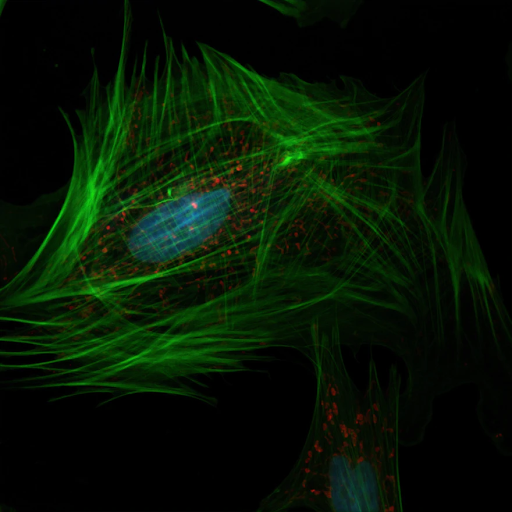The 20th century was known as the “century of the atom,” where breakthrough discoveries on the elements’ physical and chemical properties led to the innovation of medical diagnostics, microchips, computers, and atomic energy.
However, the corresponding advancements in bioinformatics techniques and technologies could make the 21st century the “century of DNA.” Researchers can now obtain, analyze, and manipulate DNA sequences in ways that were a dream 30 years ago. The ability to synthesize entire genes and genomes significantly impact metabolic engineering, genetic network design, and vaccines.
DNA synthesis offers enormous potential for new biological functionality, thus playing a vital role in modern molecular biology.
In the following part, we’ll look at what gene synthesis is and how it is quickly becoming a cornerstone in synthetic biology.
What is Gene Synthesis?
Gene synthesis is a generic term that involves chemically synthesizing gene-length pieces of DNA. In simple words, it is a group of synthetic biology methods used in combination to engineer genes from nucleotides de novo.
The most significant aspect of artificial gene synthesis is that it doesn’t require template DNA, unlike DNA synthesis in living cells or polymerase chain reaction (PCR), allowing biologists to synthesize virtually any DNA sequence within a laboratory setting. As a result, this chemical synthesis is faster, much straightforward, and less costly than other alternative molecular cloning methods.
History of Gene Synthesis
The first artificial synthesis of a DNA molecule dated to 1955 when Sir Alexander Todd created a phosphate link between two thymidine nucleosides.
But it was in the 1970s when Gobind Khorana’s group performed the first-ever successful synthesis of an entire gene, a 77-nucleotide alanine tRNA fragment that took more than five years to synthesize.
Subsequent improvements in the assembly methods allowed the synthesis of increasingly long genes, and, in 2003, biologists synthesized an entire viral genome, a phiX174 bacteriophage.
In addition, the publishing of microchip- and microfluidics-based methods for high-throughput gene synthesis resulted in the first complete synthesis of a bacterial genome in 2008.
More recently, the automation, amplification, and sequencing methods have been refined, leading to tremendous improvements in DNA synthesis and making it possible to synthesize genes over 1 kb in a few days.
How Has Gene Synthesis Revolutionized Biology Research?
Gene synthesis holds critical advantages over traditional molecular cloning techniques, some of which are as follows.
- Allows creating and modifying genetic sequences at an unprecedented pace.
- Enables constructing new metabolic systems in living cells.
- Detects and breaks down environmental pollutants in the air, water, and soil.
- Allows designing or reprograming the entire genomes and cells with 100% correct sequence.
- Improves crop yields and reduces vulnerability to common plant diseases.
For these outstanding advantages, gene synthesis has a wide range of applications.
- Bioengineering
For bioengineers, every gene is a machine containing numerous parts that play standardized functional roles. These parts can be interchanged and rearranged to create new and improved machines, as per preferences. Gene synthesis allows them to produce new biomolecular machines using customized sequences, thus streamlining the entire production process.
- Metabolic Engineering
Metabolic engineering is a valuable domain of synthetic biology. Traditionally, researchers derived natural products from plant extracts or total synthesis of the desired compound. However, purifying the compounds from natural sources was challenging and often resulted in low yields and specificity.
Gene synthesis allows researchers to program cells by engineering parallel metabolic systems associated with natural cellular metabolic machinery, synthesizing cost-effective chemicals and drugs. Moreover, it enables them to harvest valuable quantities of the desired product than other methods.
- Plant Biology Research
Gene synthesis in plant biology and agricultural research allows researchers to understand plant signaling pathways and protect endangered species. This, in turn, assists in discovering natural products for industrial or pharmaceutical uses or creating new food crop strains, thus overcoming food security and nutrition challenges.
- Virology/Vaccines
Virologists routinely use gene synthesis in vaccine research, design, and development. These vaccines are vital in mitigating or managing emerging threats, such as Ebola Virus and Seasonal Influenza A.
Besides, gene synthesis is used in basic virology and microbiology research studies, allowing researchers to understand how infection affects the body’s immune system and response to specific pathogens. Furthermore, virologists leverage synthetic modified viral sequences to produce safer, effective DNA vaccines.
- Cancer Biology Research Applications
Gene synthesis reveals a novel mechanism for cancer cell metabolic regulation, allowing researchers to design and develop DNA vaccines to prevent cancer. In addition, the technique is extensively used for creating therapeutic antibodies for immuno-oncology treatments.
Conclusion
Gene synthesis eliminates the labor-intensified processes involved to generate mutated or entirely novel DNA sequences without any template DNA, thus simplifying the creation of DNA tools. Researchers are no longer limited to laborious traditional molecular cloning methods to manipulate a single gene at a time. Further advancements in automation and error correction will make gene synthesis vital in various scientific disciplines and applications.

